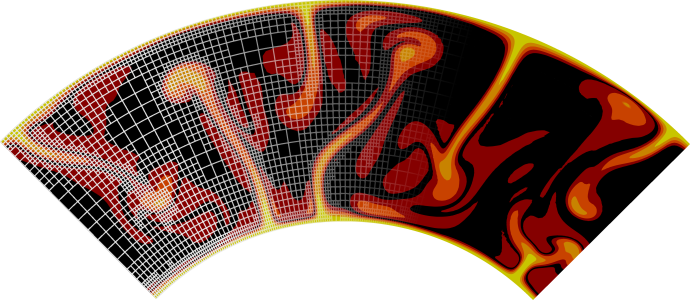Initial conditions
Initial conditions#
The initial conditions model is responsible for describing the initial temperature distribution throughout the domain. It essentially has to provide a function that for each point can return the initial temperature. Note that the model (1)–(3) does not require initial values for the pressure or velocity. However, if coefficients are nonlinear, one can significantly reduce the number of initial nonlinear iterations if a good guess for them is available; consequently, ASPECT initializes the pressure with the adiabatically computed hydrostatic pressure, and a zero velocity. Neither of these two has to be provided by the objects considered in this section.
To implement a new initial conditions model, you need to overload the
aspect::InitialConditions::Interface class and use the
ASPECT_REGISTER_INITIAL_CONDITIONS macro to register your new class. The
implementation of the new class should be in namespace
aspect::InitialConditions.
Specifically, your new class needs to implement the following basic interface:
template <int dim>
class aspect::InitialConditions::Interface
{
public:
void
initialize (const GeometryModel::Interface<dim> &geometry_model,
const BoundaryTemperature::Interface<dim> &boundary_temperature,
const AdiabaticConditions<dim> &adiabatic_conditions);
virtual
double
initial_temperature (const Point<dim> &position) const = 0;
static
void
declare_parameters (ParameterHandler &prm);
virtual
void
parse_parameters (ParameterHandler &prm);
};
The meaning of the first class should be clear. The purpose of the last two functions has been discussed in the general overview of plugins above.

